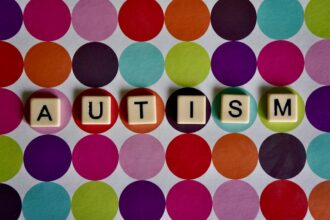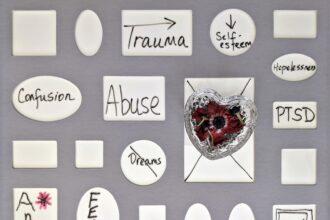Depersonalization and derealization disorder is a complex mental health condition that can leave you feeling detached from your own thoughts, feelings, or sense of self. You may experience a sense of unreality regarding your surroundings or feel as if you are observing yourself from outside your body. This disorder can be disorienting and distressing, often leading to confusion about your identity and the world around you.
It is essential to understand that these experiences are not merely a figment of your imagination; they are genuine psychological phenomena that can significantly impact your life. The disorder is classified under dissociative disorders in the Diagnostic and Statistical Manual of Mental Disorders (DSM-5). While it can occur as a standalone condition, it often coexists with other mental health issues, such as anxiety or depression.
Understanding this disorder is crucial for recognizing its symptoms and seeking appropriate help.
Key Takeaways
- Depersonalization and derealization disorder is a mental health condition characterized by feeling detached from oneself and the surrounding environment.
- Depersonalization symptoms include feeling like an outside observer of one’s thoughts and actions, while derealization symptoms involve a sense of unreality or detachment from the environment.
- Factors contributing to depersonalization and derealization disorder may include trauma, stress, anxiety, and substance abuse.
- The disorder can significantly impact daily functioning, leading to difficulties in relationships, work, and overall quality of life.
- Treatment options for depersonalization and derealization disorder may include therapy, medication, and lifestyle changes, while coping strategies and seeking support are also important for managing symptoms and improving well-being.
Understanding Depersonalization Symptoms
When you experience depersonalization, you may feel as though you are disconnected from your body or thoughts. This sensation can manifest in various ways, such as feeling like you are watching yourself in a movie or feeling as if your body does not belong to you. You might notice that your emotions seem muted or that you have difficulty connecting with your feelings.
This emotional detachment can lead to a sense of isolation, making it challenging to engage with others or enjoy activities that once brought you joy. Additionally, depersonalization can create a sense of confusion about your identity. You may question who you are or feel as if you are living in a dream.
This disconnection can be frightening and may lead to increased anxiety or panic attacks. Understanding these symptoms is vital for recognizing when you might need help and for communicating your experiences effectively to mental health professionals.
Recognizing Derealization Symptoms

Derealization, on the other hand, involves a sense of detachment from your environment. You may perceive the world around you as strange, distorted, or unreal. Everyday objects might appear unfamiliar, and familiar places may seem foreign.
This altered perception can create a sense of disconnection from reality, making it difficult for you to engage fully with your surroundings. You might find yourself questioning whether what you see is real or if you are trapped in a dream-like state. The symptoms of derealization can also lead to feelings of anxiety and fear.
You may worry about losing touch with reality or feel overwhelmed by the strangeness of your experiences. This heightened state of awareness can make it challenging to focus on daily tasks or interact with others. Recognizing these symptoms is crucial for understanding the nature of your experiences and seeking appropriate support.
Factors Contributing to Depersonalization and Derealization Disorder
| Factor | Contribution |
|---|---|
| Trauma | High |
| Stress | Moderate |
| Genetics | Low |
| Substance abuse | High |
| Personality factors | Moderate |
Several factors can contribute to the development of depersonalization and derealization disorder. One significant factor is trauma, particularly during childhood. Experiencing traumatic events can lead to dissociative symptoms as a coping mechanism, allowing you to distance yourself from overwhelming emotions or memories.
Stressful life events, such as the loss of a loved one or significant changes in your life circumstances, can also trigger these symptoms. Additionally, certain mental health conditions, such as anxiety disorders or post-traumatic stress disorder (PTSD), can increase the likelihood of experiencing depersonalization and derealization. Substance use, particularly hallucinogens or other psychoactive drugs, can also induce these sensations temporarily.
Understanding these contributing factors can help you identify potential triggers in your life and work towards addressing them.
Impact on Daily Functioning
The impact of depersonalization and derealization disorder on daily functioning can be profound. You may find it challenging to concentrate on tasks at work or school due to the disorienting nature of your experiences.
This disconnection can lead to feelings of loneliness and isolation, further exacerbating any underlying anxiety or depression. Moreover, the constant questioning of reality can create a sense of instability in your life. You might avoid situations that trigger your symptoms, leading to a restricted lifestyle that limits your opportunities for personal growth and fulfillment.
Recognizing how this disorder affects your daily functioning is essential for seeking appropriate treatment and support.
Co-occurring Disorders and Depersonalization/Derealization

Depersonalization and derealization disorder often coexist with other mental health conditions, complicating diagnosis and treatment. Anxiety disorders, including generalized anxiety disorder and panic disorder, frequently accompany these dissociative symptoms. The heightened state of anxiety can exacerbate feelings of detachment, creating a cycle that is difficult to break.
Depression is another common co-occurring disorder that can influence the severity of depersonalization and derealization symptoms. Feelings of hopelessness and despair may intensify the sense of disconnection from oneself and the world. Additionally, individuals with post-traumatic stress disorder (PTSD) may experience dissociative symptoms as a response to traumatic memories.
Understanding these co-occurring disorders is crucial for developing a comprehensive treatment plan that addresses all aspects of your mental health.
Diagnosing Depersonalization and Derealization Disorder
Diagnosing depersonalization and derealization disorder typically involves a thorough assessment by a mental health professional. During this evaluation, you will likely discuss your symptoms, medical history, and any potential triggers for your experiences. The clinician may use standardized questionnaires or diagnostic criteria outlined in the DSM-5 to determine whether you meet the criteria for this disorder.
It is essential to be open and honest during this assessment process to ensure an accurate diagnosis. The clinician will consider the duration and frequency of your symptoms, as well as their impact on your daily life. A proper diagnosis is crucial for developing an effective treatment plan tailored to your specific needs.
Treatment Options for Depersonalization and Derealization Disorder
Treatment options for depersonalization and derealization disorder vary depending on individual needs but often include psychotherapy as a primary approach. Cognitive-behavioral therapy (CBT) is commonly used to help you identify negative thought patterns and develop coping strategies for managing symptoms. Through therapy, you can learn techniques to ground yourself in reality and reconnect with your emotions.
In some cases, medication may be prescribed to address co-occurring conditions such as anxiety or depression. Antidepressants or anti-anxiety medications can help alleviate some of the distress associated with these disorders. However, medication alone is typically not sufficient; combining it with therapy often yields the best results.
Coping Strategies for Managing Symptoms
In addition to professional treatment, there are several coping strategies you can employ to manage symptoms of depersonalization and derealization disorder effectively. Mindfulness practices, such as meditation or deep breathing exercises, can help ground you in the present moment and reduce feelings of detachment. Engaging in physical activities like yoga or exercise can also promote a sense of connection between your mind and body.
Keeping a journal can be another helpful tool for processing your thoughts and emotions. Writing about your experiences may provide clarity and help you identify triggers for your symptoms. Additionally, establishing a strong support network of friends or family members who understand what you’re going through can provide comfort during difficult times.
Seeking Support for Depersonalization and Derealization Disorder
Seeking support is an essential step in managing depersonalization and derealization disorder effectively. Connecting with mental health professionals who specialize in dissociative disorders can provide valuable insights into your experiences and offer tailored treatment options. Support groups, either in-person or online, can also be beneficial for sharing experiences with others who understand what you’re going through.
It’s important to remember that you are not alone in this journey; many individuals experience similar feelings of detachment and disconnection. By reaching out for support, you can gain a sense of community and understanding that fosters healing and recovery.
Research and Future Directions for Understanding and Treating the Disorder
Research into depersonalization and derealization disorder is ongoing, with scientists striving to understand its underlying mechanisms better and develop more effective treatments. Recent studies have explored the neurobiological aspects of dissociation, examining how brain function may contribute to these experiences. Advances in neuroimaging technology have allowed researchers to investigate brain activity during episodes of depersonalization and derealization.
Future directions in research may focus on identifying specific biomarkers associated with the disorder, which could lead to more accurate diagnoses and targeted treatments. Additionally, exploring the efficacy of various therapeutic approaches will be crucial in developing comprehensive treatment plans that address both the psychological and physiological aspects of depersonalization and derealization disorder. In conclusion, understanding depersonalization and derealization disorder is vital for recognizing its symptoms, seeking appropriate support, and developing effective coping strategies.
By staying informed about this complex condition, you empower yourself to navigate its challenges while working towards healing and recovery.
In exploring the complex symptoms of depersonalization and derealization disorder, it’s essential to understand the profound impact these experiences can have on an individual’s perception of reality. A related article on this topic can be found on Unplugged Psychology, which delves into the nuances of these dissociative symptoms and their effects on mental health. For a comprehensive overview, you can read more about it here. This resource provides valuable insights into the disorder, helping to demystify the often confusing and distressing experiences associated with depersonalization and derealization.
LEARN MORE About Unmasking the Mysteries Behind Depersonalization and Derealization
FAQs
What are the symptoms of depersonalization and derealization disorder?
Some common symptoms of depersonalization and derealization disorder include feeling detached from oneself, feeling like an outside observer of one’s thoughts or body, and experiencing a sense of unreality or detachment from the environment.
What are the emotional symptoms of depersonalization and derealization disorder?
Emotional symptoms of depersonalization and derealization disorder may include anxiety, panic, depression, and a sense of hopelessness or confusion.
What are the physical symptoms of depersonalization and derealization disorder?
Physical symptoms of depersonalization and derealization disorder may include feeling numb or detached, experiencing distorted perceptions of time, and feeling like the world is artificial or dreamlike.
How long do the symptoms of depersonalization and derealization disorder last?
The symptoms of depersonalization and derealization disorder can be chronic or episodic, and may last for months or even years. In some cases, the symptoms may come and go over a long period of time.
What causes depersonalization and derealization disorder?
The exact cause of depersonalization and derealization disorder is not fully understood, but it is believed to be related to a combination of biological, psychological, and environmental factors. Trauma, stress, and certain personality traits may also contribute to the development of the disorder.
How is depersonalization and derealization disorder diagnosed?
Depersonalization and derealization disorder is diagnosed based on a thorough evaluation of the individual’s symptoms, medical history, and any underlying mental health conditions. A mental health professional may also use specific assessment tools to help make a diagnosis.
What are the treatment options for depersonalization and derealization disorder?
Treatment for depersonalization and derealization disorder may include psychotherapy, medication, and self-help strategies. Cognitive-behavioral therapy (CBT) and mindfulness-based approaches have been found to be effective in helping individuals manage their symptoms. Medications such as antidepressants or anti-anxiety drugs may also be prescribed in some cases.




